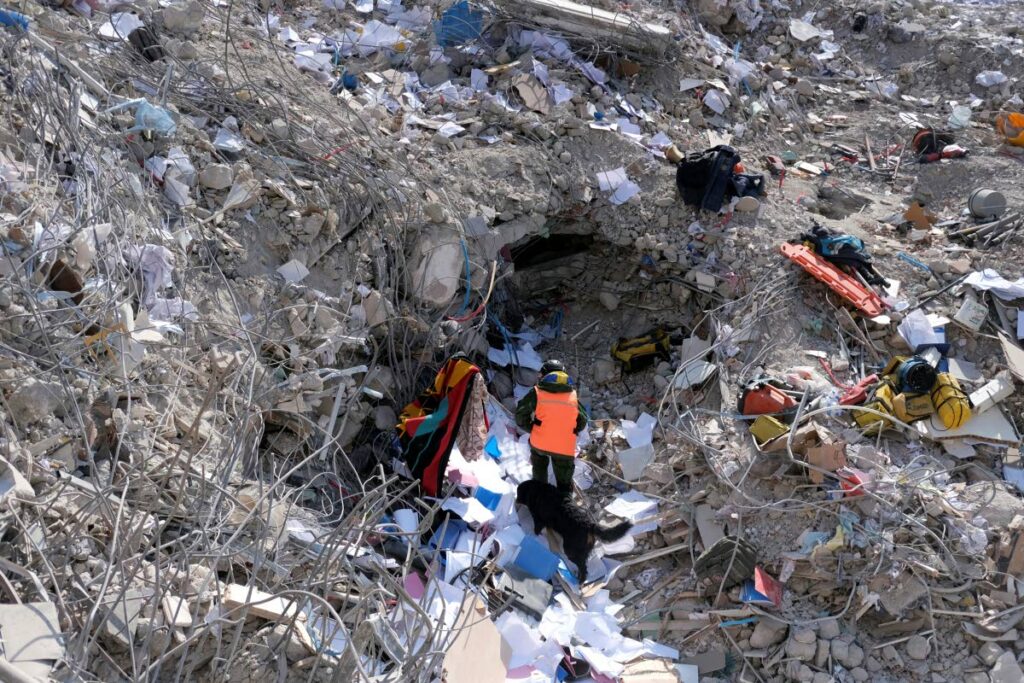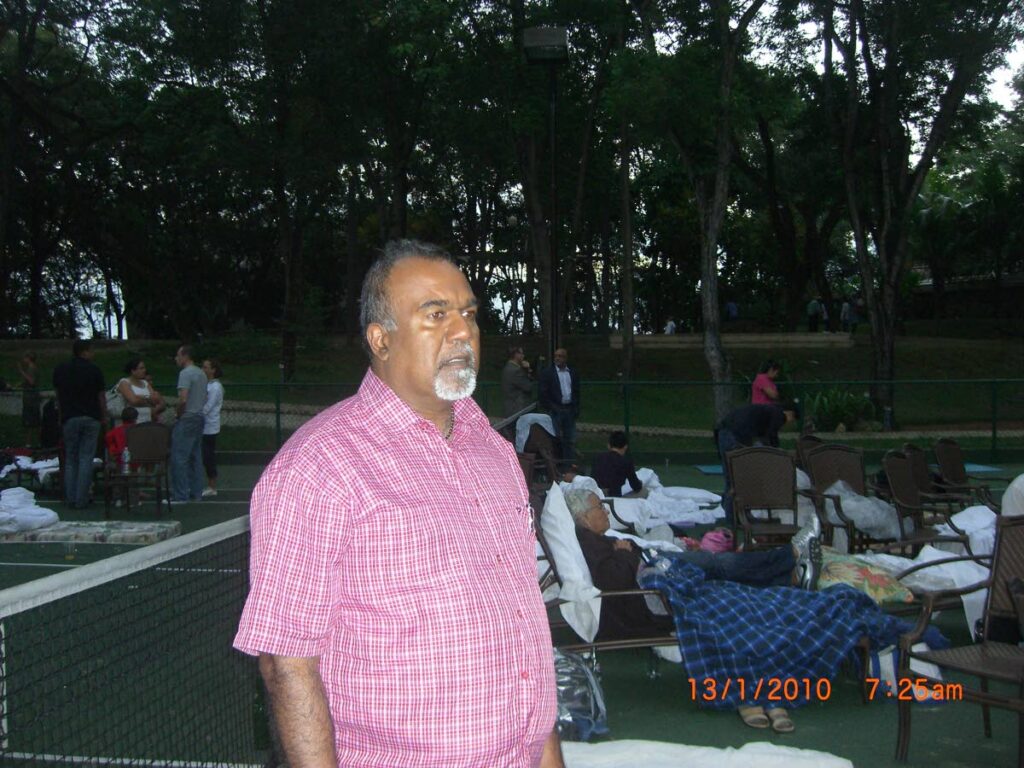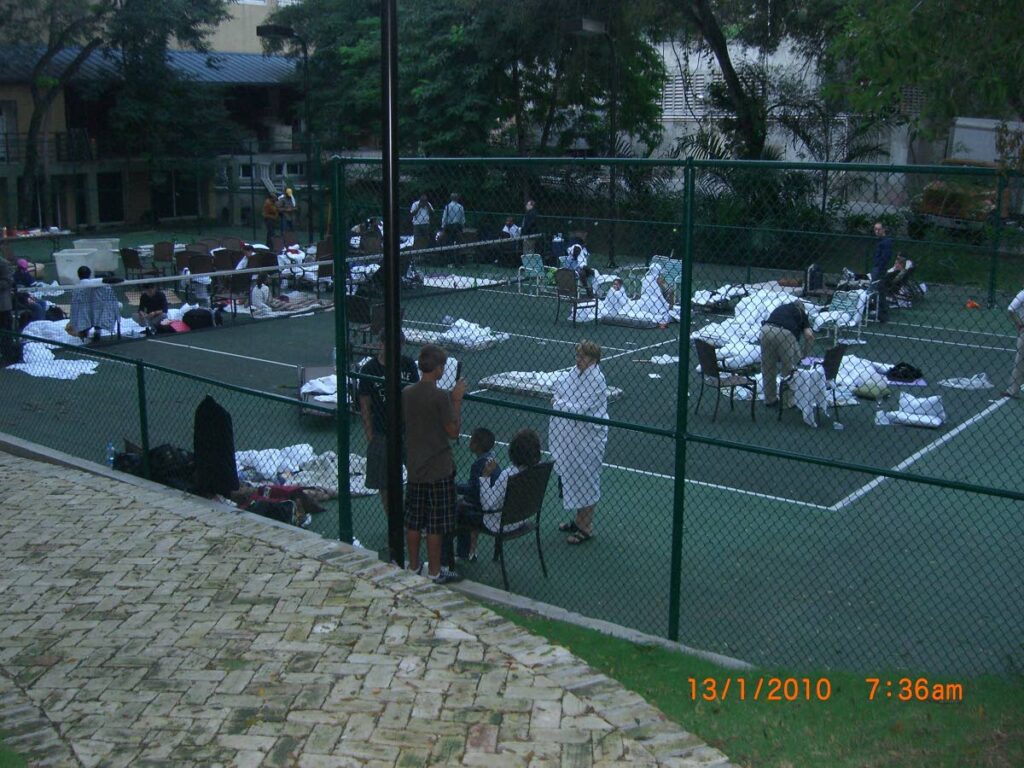Earthquake preparedness

Ramesh Lutchmedial
On February 6, a 7.8 magnitude earthquake struck southern and central Turkey and northern and western Syria at 04.17 am Turkish time. Nine hours later, a 7.7 magnitude aftershock occurred.
The World Health Organization describes the earthquakes as the worst natural disaster in a century.
The graphic images streaming daily across television screens of the aftermath of the earthquakes and the rising death toll, which at the time of writing was 37,000, brought back vivid memories of the deadly 7.0 magnitude earthquake which struck Haiti on January 12, 2010.
On that fateful day, I was booked to travel with other colleagues on flight AA880, departing Miami at 9.55 am, for Haiti, to attend a board meeting of the Caribbean Aviation Safety and Security System, the aviation organ of Caricom. For unexplained reasons, and despite the unyielding urgings of my colleagues, who were adamant that I travel on the same flight with them, I made a last-minute decision not to travel on that flight and instead rebooked for the 2.05 pm flight, arriving in Haiti at 4 pm.
I was on my way from the airport to the Montana Hotel when my taxi stopped at an intersection less than a quarter of a mile away from the hotel. Suddenly, at 4.53 pm, the taxi began to shake violently and I quickly jumped out into the road, only to witness all the buildings around me imploding in seconds.

Hundreds of people in my immediate vicinity were trapped under debris with very serious injuries, frantically begging for help. A man came up to me holding a baby with a crushed head, bawling in heartbreaking distress.
As a first-time visitor to Haiti and unable to speak French, I was seriously disadvantaged in rendering assistance. I tried using my mobile phone to make calls, but all wireless communications were down owing to power outages.
The prison walls had collapsed and prisoners, including convicted murderers, escaped and were freely roaming around.
The utter chaos, mayhem and carnage that followed were gruesome.

A UN peacekeeping force was in Haiti. After getting directions from one of the English-speaking peacekeepers, I walked to the Montana Hotel. I was horrified on seeing that the entire hotel had collapsed, as my colleagues who travelled on AA880 to Haiti were also guests there. With much difficulty, I was able to make my way to the Caribe Hotel, where some other colleagues were staying. I got there in the darkness and spent the night with them on an open tennis court, without electricity or bathroom facilities.
Approximately 360,000 people perished in the earthquake, including all my colleagues who were staying at the Montana Hotel.
The death toll overwhelmed the very limited medical, rescue, disaster relief and security resources. Equipment to clear debris to rescue trapped persons and mortician services were utterly inadequate. By the time foreign rescue teams arrived, thousands had perished and their bodies were piled up along the roads. They were just fingerprinted and buried in mass graves, wiping out the memories of entire families who had died.
According to the UWI Seismic Research Centre, “Trinidad and Tobago are well within the range of several geological faults and seismic source zones that are capable of producing strong (magnitude 6-7) and major (magnitude 7-8) earthquakes. In 1766, an earthquake with a magnitude of 7.9 occurred between Venezuela and Trinidad resulting in the total destruction of the then capital San Jose and all masonry buildings in Trinidad."
The Elected Officials Guide to Earthquakes in TT, published by the UWI Seismic Research Centre in May 2013, states: “Catastrophic earthquakes can adversely affect the environment, overwhelm production facilities, distribution systems and economic markets; jeopardising the financial stability of businesses, insurers, communities and the nation."
The guide further states, “Should a moderate earthquake cause ten per cent of the infrastructure to be damaged (this is the typical provision in countries that have well-established and enforced building codes that are based on life safety), it can result in losses over TT$100 billion.”
The TT Office of Disaster Preparedness and Management (ODPM), together with other local and foreign agencies, does earthquake simulations to evaluate the effectiveness of national and international responses.
Up-to-date contact information for all first responders such as trained medical personnel including doctors, nurses, paramedics and security personnel, is critical for timely rescue operations. Civil works contractors can facilitate the rapid mobilisation and deployment of heavy equipment for rescue operations.
If an earthquake occurs during peak traffic hours and roads and overpasses become impassable due to structural damage, there must be contingency plans for helicopter operators to medivac the injured to medical facilities or to transport medical personnel and equipment to disaster areas.
Most importantly, an independent annual operational audit of the ODPM should be carried out to determine the efficacy of its published disaster preparedness plans and procedures.
Powerful earthquakes, unlike other forms of natural disasters such as hurricanes, strike without warning, causing devastation and death at lightning speed. Every second in rescue operations makes a life-and-death difference.
Unless we are truly prepared, untold numbers will perish. In January 2010, I experienced that reality in Haiti.
Ramesh Lutchmedial
is a retired director general of Civil Aviation.


Comments
"Earthquake preparedness"